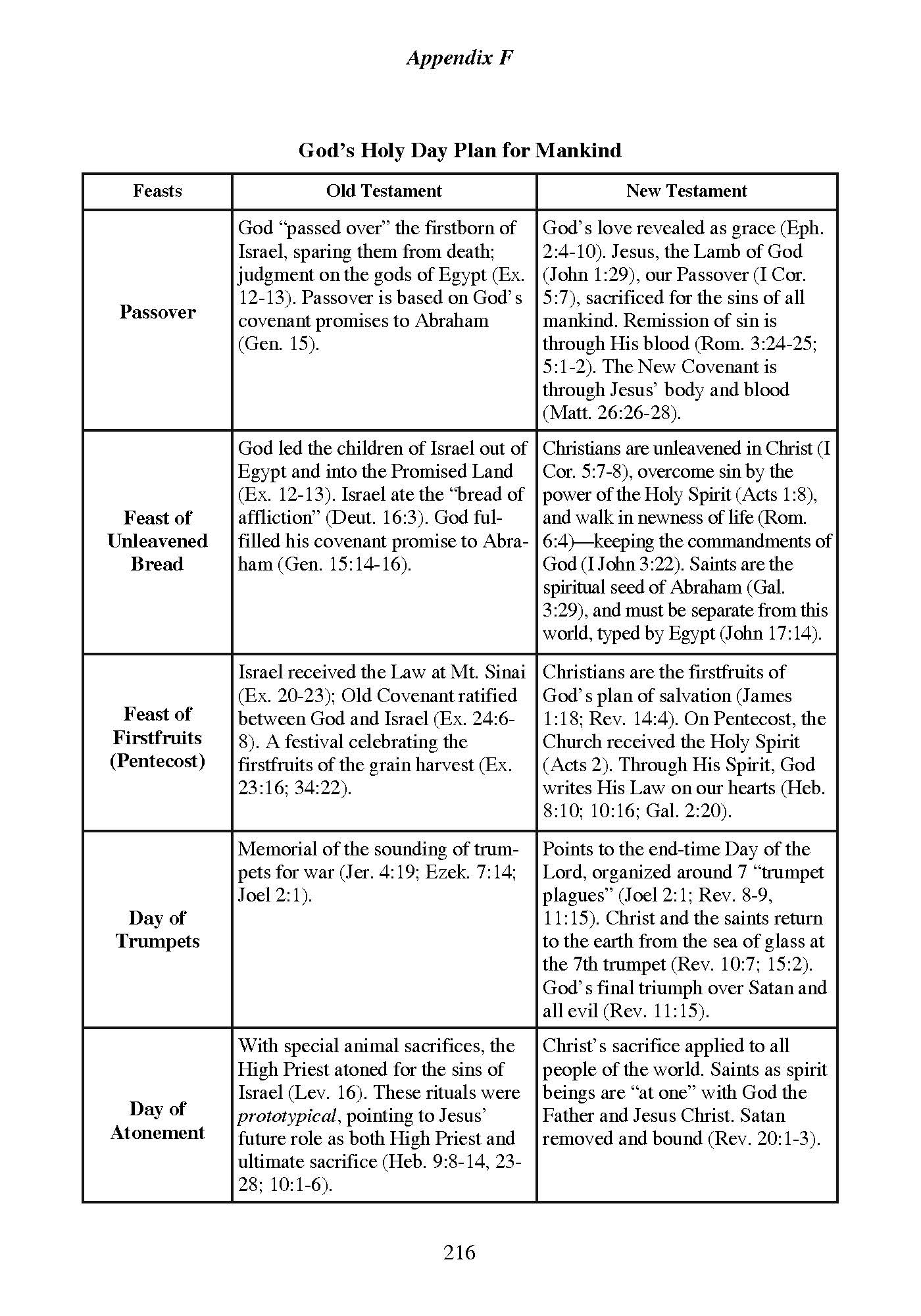The Scriptures teach that there are seven annual holy days or festivals ordained by God to be observed as special commanded convocations. These high days portray—in a step-by-step manner—God’s entire plan of salvation for mankind. Moreover, the observance of these holy convocations is a sign between God and His people.
God’s annual holy days were observed by Israel during Old Testament times—primarily as festivals acknowledging God’s deliverance and physical blessings. The issue of sin and redemption was only dealt with superficially, utilizing rituals that pointed to a future reality. The deeper, spiritual meaning of these feasts would become clear only after Jesus’ first coming.
In the New Testament, we find that Christ’s entire ministry was centered around the spiritual meaning of God’s holy days. The New Testament apostolic Church faithfully observed these annual feasts and holy days. Moreover, the Scriptures reveal that they will be observed by all mankind after the return of Christ (see Zech. 14:18-19).
As the holy days are annual Sabbath days, they may fall on any day of the week (except Pentecost, which always falls on a Sunday). When a holy day falls on a weekly Sabbath, the special observance of the holy day takes precedence. God’s feasts and holy days are to be observed from sunset to sunset (Lev. 12:32) in accordance with the Calculated Hebrew Calendar as preserved by the Levitical Jews (Rom. 3:2).
The seven annual holy days are as follows (as listed in Leviticus 23):
| Feast or Holy Day | Scriptural Date of Observance |
| 1) Passover * | 14th day of the first month (Nisan, or Abib) |
| 2) Unleavened Bread (7 days) | 15th through 21st days of the first month; the first and last days are high days |
| 3) Pentecost | counted annually ** |
| 4) Trumpets | 1st day of the seventh month (Tishri) |
| 5) Atonement | 10th day of the seventh month |
| 6) Tabernacles (7 days) | 15th through 21st days of the seventh month; only the first day is a high day |
| 7) Last Great Day | 22nd day of the seventh month |
*Passover, which is actually a festival event (Ex. 34:25), is not a high day. It is observed on the evening of the 14th.
**Fifty days are counted, beginning with the first day of the week during the Days of Unleavened Bread. The feast is observed on the fiftieth day, which always falls on the first day of the week (Sunday).













